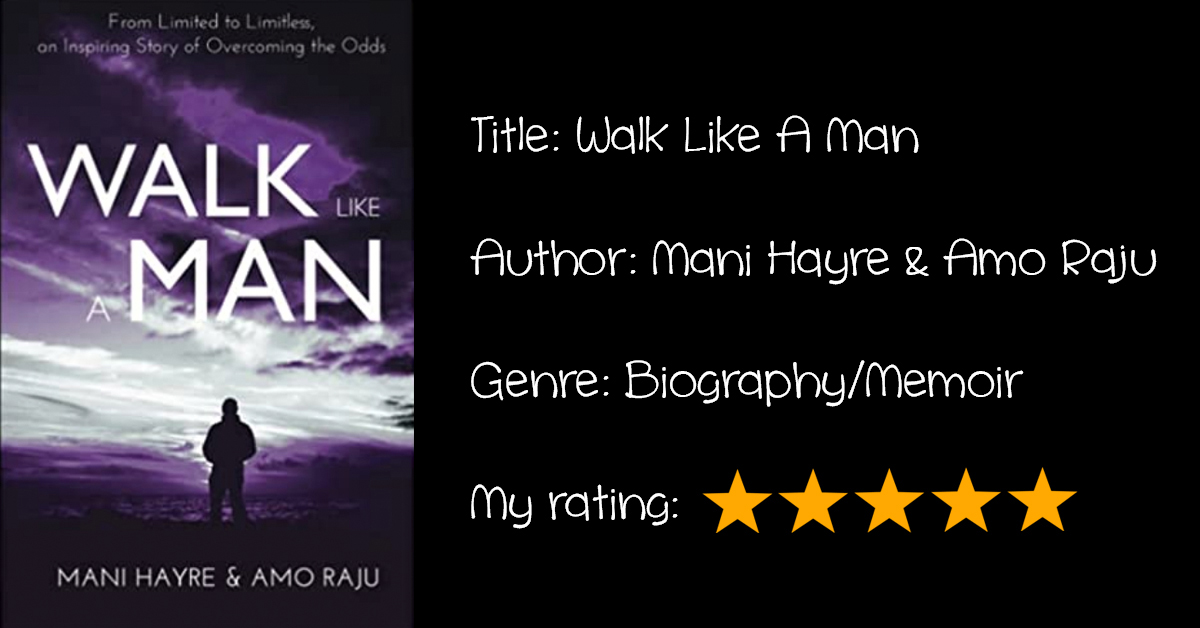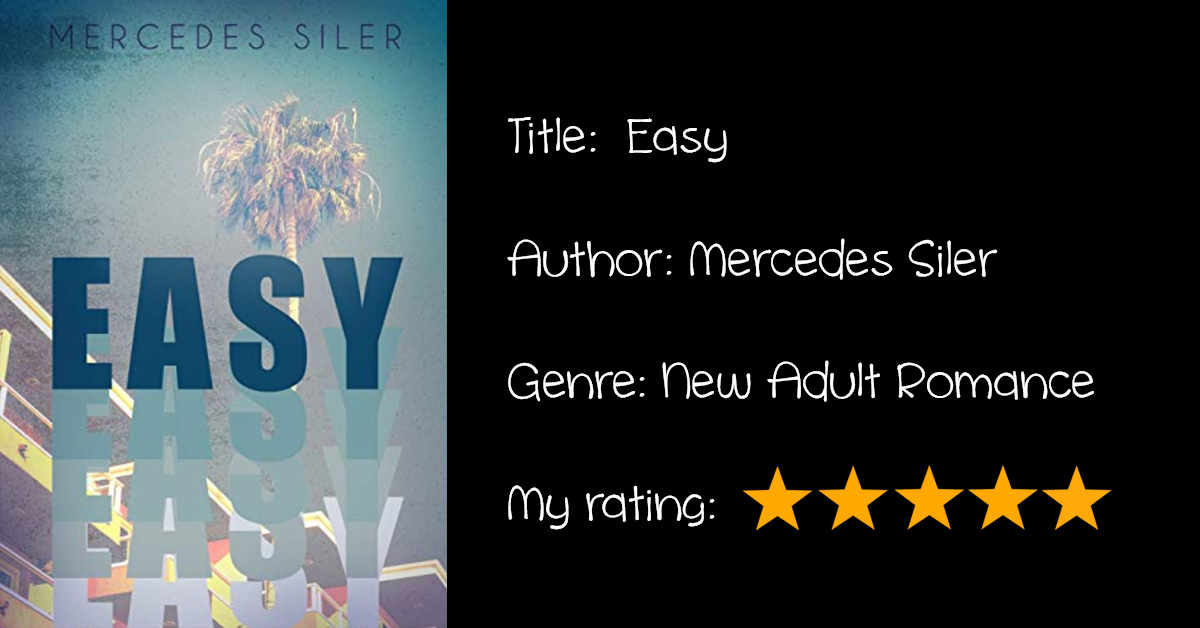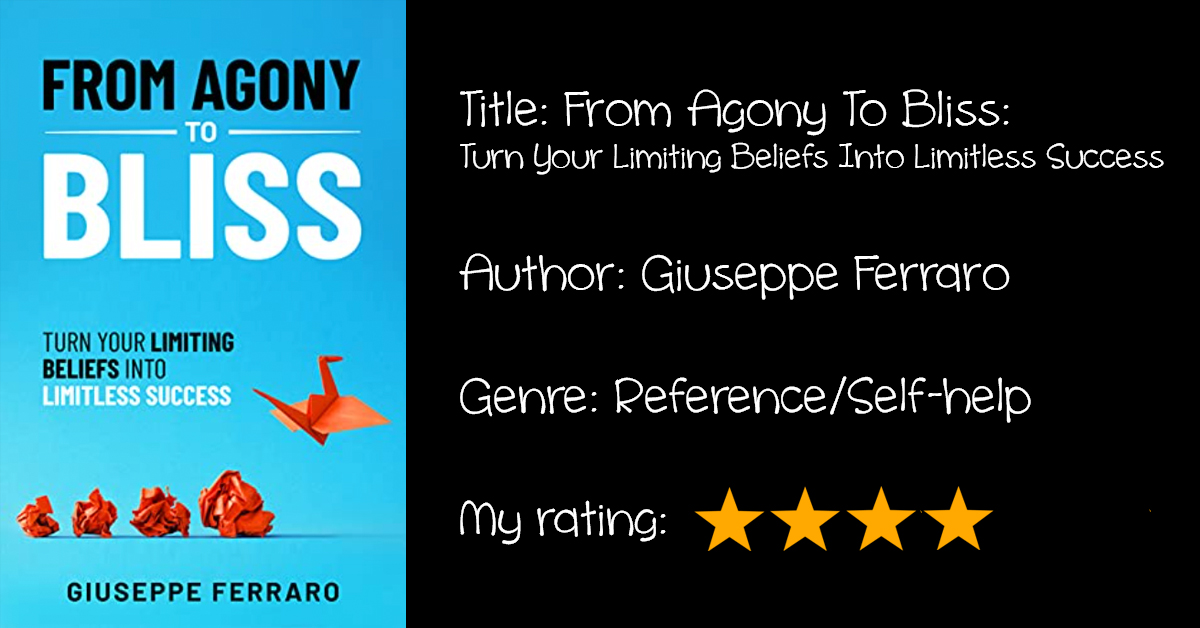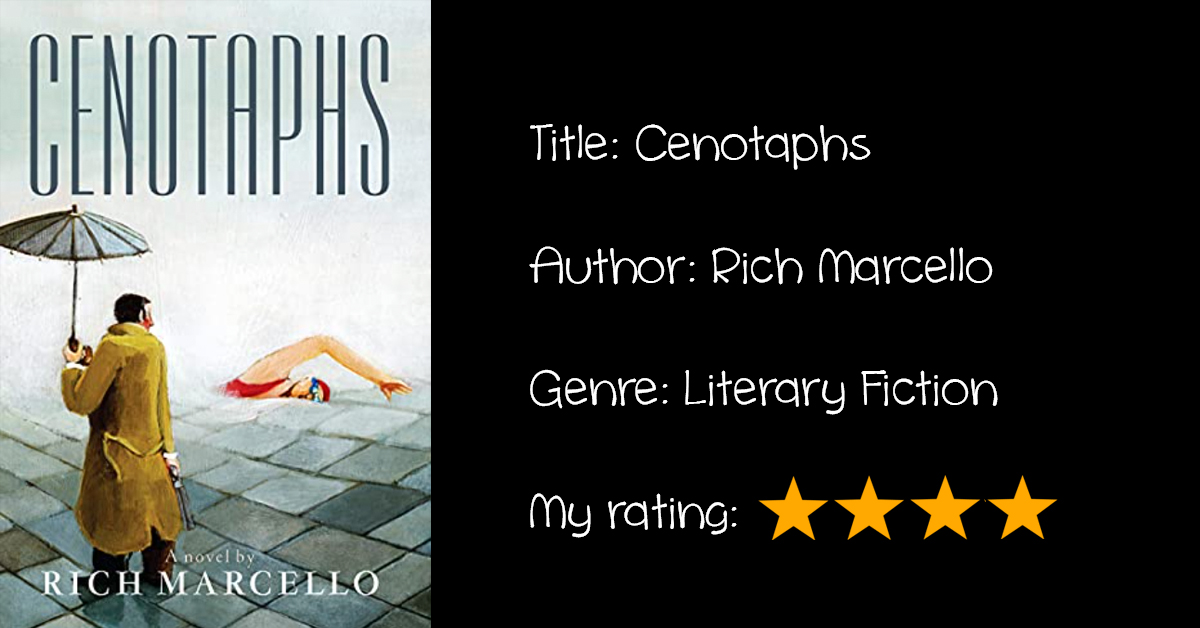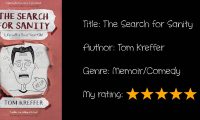Review: “Walk Like A Man”
A moving, inspirational memoir about overcoming the odds to become a champion for disability rights
This was my forty-fourth book I chose via the Reedsy Discovery program, for which I am the single approved reviewer for this new book. This review also appears on Reedsy.
If you’re interested in becoming a Reedsy reviewer (and have the chance to get paid “tips” to review books!) check it out here.
The Premise
As a child, Amraj “AJ” Rai endured bullying from both students and teachers, and among his community as a UK Punjabi Sikh, they believe that no one will ever “give their daughter” to a “cripple”. His therapist Sonia becomes the catalyst of change for him — as he recounts his experience, reflecting on aspects of his life, she helps him to analyse his own responses to the challenges he faces.
When he takes on a volunteer role at a charity that provides support for disabled people, he is skeptical at first, having had bad experiences with these types of jobs for “vegetables” (lower-functioning disabled people) in the past. However, this soon becomes his calling.
As the years go by and AJ rises in his profession, even entering the realm of politics, we are given an intimate portrait of the trials and tribulations he faces while navigating a world not designed for disabled people. This semi-autobiographical book weaves in the co-author Amo’s own experience: a triumphant story of rising above all to build a life of meaning and purpose.
The Pros
This was a moving, inspirational memoir about overcoming the odds to become a champion for disability rights.
In AJ’s case, being doubted by others is what spurs his determination. Upon seeing the “activities” he is expected to do, he shouts:
“Is this all you think I’m capable of? You want me to come here each day and stare at the walls? Just you wait and watch. I’ll prove to you I’m going to be someone special and not what you think I should be.”
As his aimless youth of pain and anger evolves into a life of purpose as a disability-centre CEO and politician, AJ maintains a tenuous link to his therapist Sonia. She is always the one to point out his foibles that are not related to his disability: his self-absorption, his negativity, his anger, and his hesitancy to trust and accept love and friendship from others. I loved this aspect in particular — too often, we are presented with “saintly” images of leaders, particularly those with disabilities, when this is far from the case; they too are human.
As he terms it, his background as a Sikh with a disability in the Asian community makes him “highly visible and incredibly invisible at the same time”, but his role at the charity finally gains him the respect he craves. His accolades are, however, coupled by his mental health issues, which evolve as time goes by and his innate “sensitivity” has to come face-to-face with the real world. AJ hides his struggles, not wanting them to become an additional barrier; his physical weakness is already enough of a “strike” against him.
There were many conversations/themes that really hit home. For instance, AJ points out that we don’t worry about disability until it affects us directly, even though it will surely affect us all at some stage in life; and that mental health issues abound all around us: sometimes the “loudest one in the pub” may actually be the one who is most at risk. Another theme that is prominent is that of the “strong male”. In the words of his friend Tan:
“We’re conditioned as men not to talk about how we’re feeling when we’re hurt. After a while, it just builds up and we continue to suffer in silence. Our pain manifests in drinking, drugs, or other vices.”
I especially appreciated the way that AJ’s depression — even at times when his life seems to be going well — is portrayed. We tend to assume that bad events lead to depression, but it is evident that depression is its own beast:
“It’s mine, a part of me. I own it but every now and then it owns me.”
Conclusion
This was a beautiful story that was well written and engaging. I am glad that I chose it, and it was an excellent read that I would highly recommend to others from all backgrounds — particularly if they live with a disability, but the lack of this should not deter any reader!
Overall, the most important message here is one of triumph, of overcoming the odds and never letting anyone set limits on what you can and can’t do. Another line that resonated with me is that perhaps we are not all meant to be happy; discontent is the root of much-needed transition and evolution, or as AJ/Amo aptly terms it:
“Those of us who are depressed live to change the world.”
